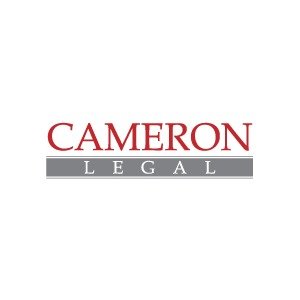Best Debt & Collection Lawyers in Epping
Share your needs with us, get contacted by law firms.
Free. Takes 2 min.
List of the best lawyers in Epping, Australia
About Debt & Collection Law in Epping, Australia:
Debt and Collection Law in Epping, Australia encompasses a set of legal rules and regulations managing the process and procedures for collecting debts in Australia. This area of law involves consumer debts, personal debts, or business debts. The Australian Competition and Consumer Commission (ACCC) and the Australian Securities and Investments Commission (ASIC) share the responsibility of ensuring that debt collectors and creditors do not engage in unfair practices while collecting debts.
Why You May Need a Lawyer:
Professional legal assistance can be valuable in a number of scenarios relating to Debt & Collection. For instance, if you're experiencing persistent harassment from a creditor, or if a debt collector is using unfair or illegal collection tactics, you may need a lawyer's help. If you're facing bankruptcy due to unmanageable debts, need to negotiate agreements with creditors or require legal representation in court, a lawyer specializing in Debt & Collection can provide necessary legal support and advice.
Local Laws Overview:
Key aspects of the local laws about Debt & Collection in Epping, Australia mainly fall under national legislation. Creditors and debt collectors must adhere to the guidelines outlined in the ASIC Debt Collection guideline and the ACCC. They are prohibited from misleading, harrassing, coercing, or acting unconscionably towards a debtor. They must respect a debtor's right to privacy and maintain transparent and fair communication. Unfair terms in consumer contracts are also being regulated under Australian Consumer Law. It is illegal for a creditor or collector to forcibly enter your premises or seize your possessions without proper legal documentation.
Frequently Asked Questions:
Can a debt collector contact me anytime they want?
No. Regulations stipulate certain "reasonable" hours for contact. A debtor cannot be contacted on Sundays, national public holidays, or at certain times (before 7:30 AM or after 9 PM) unless the debtor has requested or agreed to it.
Can I be arrested for not paying a debt?
Irrecoverable debts, in general, do not warrant arrest or imprisonment in Australia. However failure to comply with certain Court orders could lead to penalties.
What should I do if I'm being harassed by a debt collector?
Debt harassment is illegal. Document each incident and seek assistance from a lawyer or an appropriate agency.
What can a debt collector legally take from me?
Only the court can order the recovery of debts via the seizure of property, and specific assets may be protected. A lawyer can provide advice based on your situation.
If I can’t pay, can I negotiate my debt?
Yes, negotiation or settlement with creditors can be one of the solutions to manage your debts. An experienced lawyer can assist you with this process.
Additional Resources:
You may find valuable data and resources on the websites of ASIC, ACCC, Legal Aid NSW, and the National Debt Helpline. They offer information, advice and services to help people experiencing hardship make informed decisions about managing their debts.
Next Steps:
If you need legal assistance in Debt & Collection, it is recommended that you consult a lawyer who specializes in this field. They can help you understand your rights, obligations, and the steps you can take to manage your situation. For less complex issues, you may also consider getting advice from a community legal centre or services like Legal Aid NSW.
Lawzana helps you find the best lawyers and law firms in Epping through a curated and pre-screened list of qualified legal professionals. Our platform offers rankings and detailed profiles of attorneys and law firms, allowing you to compare based on practice areas, including Debt & Collection, experience, and client feedback.
Each profile includes a description of the firm's areas of practice, client reviews, team members and partners, year of establishment, spoken languages, office locations, contact information, social media presence, and any published articles or resources. Most firms on our platform speak English and are experienced in both local and international legal matters.
Get a quote from top-rated law firms in Epping, Australia — quickly, securely, and without unnecessary hassle.
Disclaimer:
The information provided on this page is for general informational purposes only and does not constitute legal advice. While we strive to ensure the accuracy and relevance of the content, legal information may change over time, and interpretations of the law can vary. You should always consult with a qualified legal professional for advice specific to your situation.
We disclaim all liability for actions taken or not taken based on the content of this page. If you believe any information is incorrect or outdated, please contact us, and we will review and update it where appropriate.








